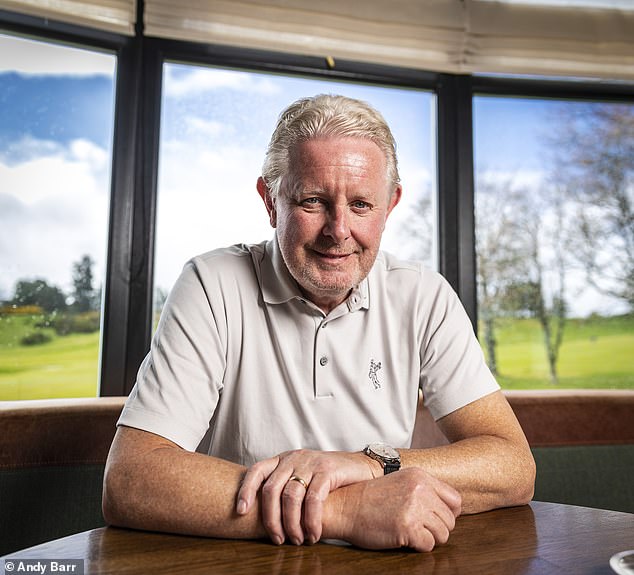There’s a pleasant rumble when names are mentioned. Dougie Donnelly can tell a story, which is perhaps as well as he’s just written an autobiography, but his script has the most fascinating cast.
He can talk about caddying for Colin Montgomerie at Augusta, getting advice from the holy fitba trinity of Ferguson, Smith and Stein, having to conduct an interview with legendary drummer Ginger Baker when a Trappist monk would be more chatty, and chatting around the 18th green with Tiger Woods, Jack Nicklaus and Arnie Palmer.
There is also the memory of Elton John graciously taking over DJ duties at a gathering in a Radio Clyde studio.
He also recounts tentative job offers from Rangers and the Scottish Football Association.
There is no grandiloquence or boasting in all this, but rather a sense of gratitude and more than a little surprise.
Dougie Donnelly has published an autobiography reflecting on his 50-year career in sport.
“I had a bit of talent, I worked hard, of course, I talked to a lot of people. People kept using me. Maybe I was stingy,” says Donnelly.
This is a scouting report from the spectacularly flawed MGM school in which Fred Astaire was assessed thus: “He can’t act. He can’t sing. He’s a little bald. He can dance a little.”
Donnelly certainly appears to have ambled through his broadcasting career since the day, more than 50 years ago, when he stood in for an ill DJ as a law student at Strathclyde University.
Since then he has covered seven Olympic Games, three Commonwealth Games, three World Cups, 33 consecutive Scottish Cup finals and more golf tournaments than you can shake a stick at. Oh, and he’s also interviewed three of the Beatles.
His personal story is therefore intriguing, but he is also a seasoned and keen observer of what the television industry was and is now. At 71, he recalls being told off for saying “Woosie” instead of “Ian” to Mr Woosnam after a post-awards round interview on the BBC.
Now watch how the modern pundit escapes censure by using even more atrocious language.
As he tells today’s pundits: “A former Scotland international made four grammatical mistakes in eight words. He said: ‘You know, I’ve seen him, he’s done brilliantly.'”
He says this with a laugh, but Donnelly is no mean-spirited spectator of the modern television world. He knows change, he accepts it, and he has been a victim of it himself.
Donnelly, who now commentates on the Asian Tour, came to the job after being deemed redundant from a similar job on the European Tour.
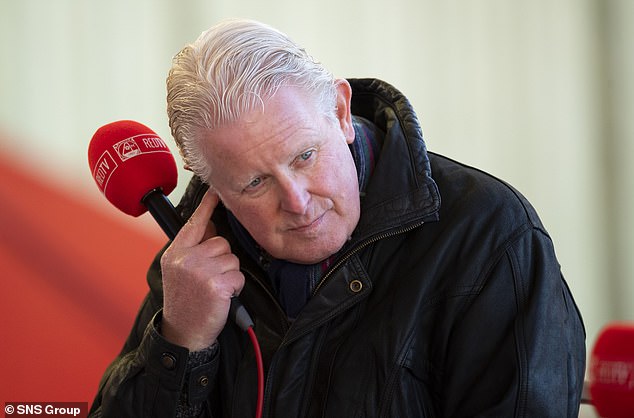
The veteran broadcaster has been a permanent fixture on our television screens over the years.
He was once a mainstay of the BBC and BBC Scotland, but his last appearance in a Scottish Cup final was 14 years ago. The BBC is a distant, if fond, memory.
There is a sense of turbulent waters ahead, but Donnelly remains on a steady course. In fact, he looks back on it all with a quiet sense of wonder.
“Would a young Dougie Donnelly have the opportunities I had now? No, for a number of reasons. Sport television looks and sounds very different to when I started.
“It’s inevitable. It evolves. I remember being very angry when Scotland played and drew with the Faroe Islands under Berti Vogts in 2002. During the broadcast I used words like appalling, disgraceful and shameful. That was very unusual then. It’s not anymore. In fact, it’s encouraged.”
He worked with such greats as Bill McLaren and Peter Alliss. “Peter was a big fan of Chic Murray and that brought us together,” he says in an aside. But he uses both characters to illustrate the modern trend of overly dramatic comments and partisan opinions.
“I listen to artists like Graeme Souness, Ally McCoist and Roy Keane all day long, but like many others I keep it to the public. But I accept that this is a generational thing. It’s all about hits, likes and controversy now. And that’s fine, if that’s what the public wants.”
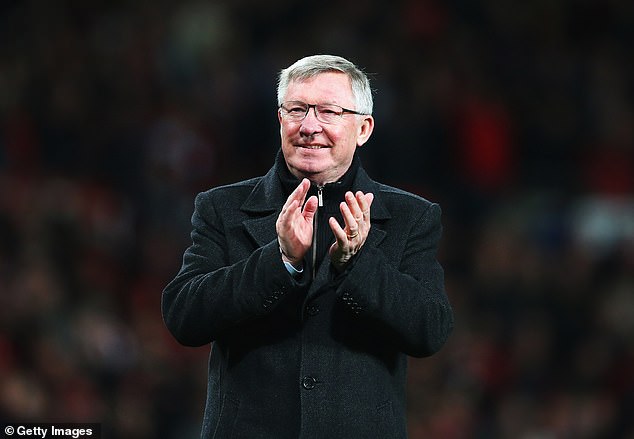
Former Manchester United manager Sir Alex Ferguson once advised Donnelly to shave off his beard.
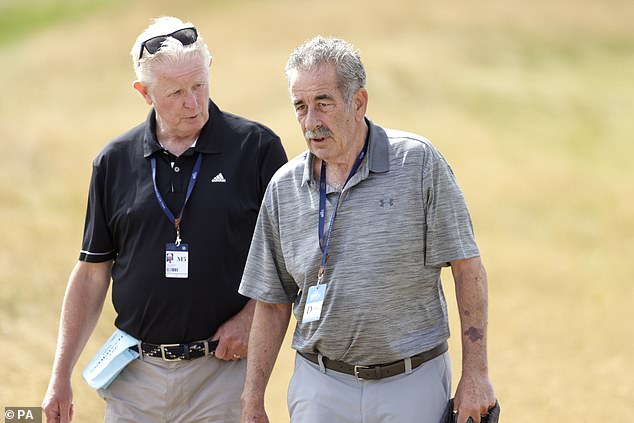
Donnelly considers Scottish golf great Sam Torrance one of his closest friends.
He holds no grudge against the BBC. “I worked for them for 33 years. I owe them a huge amount,” he says. But he is not unaware of the problems facing the corporation.
‘They still do good things, but I see that they do less and less. The most important sports are going elsewhere.
“Individual sports are played out with individual broadcasters. The moments of casual conversation where we all watched the big moments on the same channel are gone.”
Sport’s protected status on television has also largely evaporated. Donnelly was part of an advisory committee set up to decide which sporting events should be broadcast on terrestrial television under the Broadcasting Act 1996. Group A covers events that must have full live coverage. It includes the Olympics, the World Cup, the Scottish Cup final, the Derby and Wimbledon.
“I was surprised to be asked to give my opinion on Scotland,” he says. “But the reality was that BBC sports coverage was declining in terms of events, STV was not very interested and Sky was gaining strength. The pertinent question is what did Britons expect to see and what should they watch without a subscription?
‘You’d think everyone would want to get the biggest audience possible. Now, regulators pay lip service to that, but they actually want the money that comes with exclusive deals. I got a lot of phone calls from high profile people saying they didn’t want their events to be limited to the A-list.
“I said, ‘I understand what you’re saying, but there’s a broader problem here. ’ It was fascinating.”
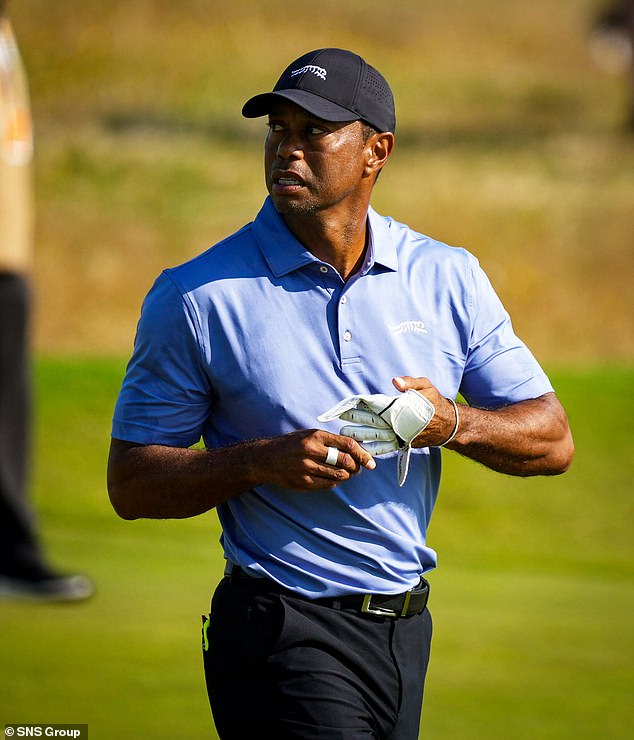
Donnelly has established relationships with sports icons such as 15-time major winner Tiger Woods.
As well as broadcasting, Donnelly was also chairman of the Scottish Institute of Sport for three years from 2005. He stepped down when the institute merged with SportScotland, but has had other opportunities to work around the world.
He was asked to become Rangers’ media chief and was also sounded out as a possible SFA chief executive.
‘I never gave either job much thought. I was contacted by Rangers on the phone in 2000. It was a sort of “would you be interested?” question. Someone in the know told me that Dick Advocaat, the then manager, would have given me a tough job. But I had no pressing interest. I’ve spent most of my career protesting about being a Clyde fan, and people would ask me if I was a Rangers or Celtic fan. I wasn’t really tempted.’
And the SFA?
“It was just a trial,” he says. “But why would I put myself in the crosshairs to take either of the two toughest jobs in Scottish football?
“I would have had to give up everything else and, frankly, I didn’t have the skills for either job. I’d like to think I could have identified some issues and addressed them.”
His experience at the Institute of Sport made him wary. “Maybe I was a bit naive and said, ‘I’m going to work with people who love sport and want to succeed’. But life isn’t like that. I suspect those jobs at Rangers and the SFA would have been the same – a culture of not rocking the boat, not doing this or that. Politics is not my thing.”
Broadcasting, of course, was and is. “It was never my intention. I was going to be a lawyer. I was four or five years into my degree when I thought, ‘You know, maybe I could stick with this.'”
He returned to Strathclyde University twenty years after leaving to sit the conveyancing exam to gain his law degree, but sport and talking to the people around him has been his life’s work.
‘I feel a great sense of privilege that I have never lost over the years. I was there when Arnie and Jack hit the final hole at the Open at St Andrews 10 years apart (1995, 2005). I thought, “You’re a lucky lad.” Being there in those moments and talking to them has never lost that sense of wonder.’
He also established a good relationship with Tiger Woods. “I once asked him on air if he wanted to go for a beer, but he thought the headlines it would generate during a tournament would be too much.” He also caddied for Colin Montgomerie at the par-3 tournament at Augusta and established a lasting friendship with Sam Torrance.
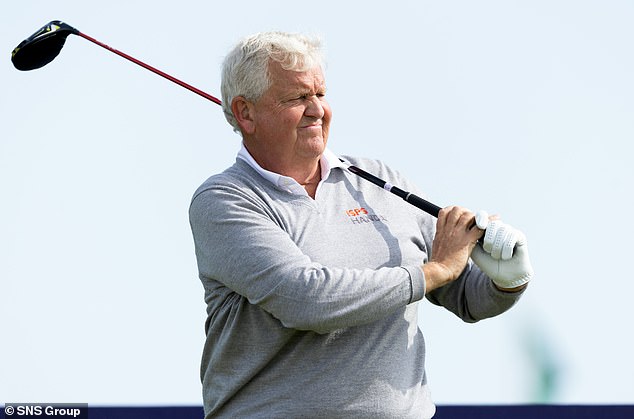
Donnelly previously caddied for Colin Montgomery at Augusta’s famous Par 3 tournament.
Professional relationships have led me to receive personal advice. ‘I was speaking in public and Mr Stein (to me he was always Mr Stein) was sitting next to me at the head table. I had used industrial language during the speech and when I sat down, Mr Stein quietly told me that I should not do that.
“He told me to stay classy and not be something I wasn’t. I remembered that. Sir Alex has been a friend of mine too. He once told me to shave my beard. He said I looked awful. So I followed his advice.”
However, the most important advice came from Walter Smith, the former Rangers and Scotland manager who became a close friend.
“He was at my daughter’s wedding in 2017 and I casually mentioned to him that I was thinking about retiring. He took me by the shoulders and told me very firmly not to do it. He said I should continue as long as I could and as long as I enjoyed it.”
Both conditions have been met and Donnelly patrols exotic circuits with microphone in hand covering the Asia Tour.
He later comments that in terms of his career he may only be making it to the 18th green.
Maybe so, but I’m betting he’ll call a decision and then force a series of playoff holes.
■ Dougie Donnelly: My Life in Sport is published by McNidder and Grace.


